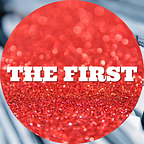If I talk to you, how much can I get paid?
At one point in early 1975, Nixon had just $500 in the bank. He let go some of his loyal staff and sold a home in Florida, but he was still running out of money.
As had become traditional for ex-presidents, he was writing his memoirs, but that would take time. Time he couldn’t afford.
Enter the scene: David Frost, a producer and show host in the UK, approached the Nixon camp with a proposal.
Frost and Nixon would sit down for a series of interviews to be broadcast worldwide. For this Nixon would receive $600,000, about $2.6 million today, and a 20% share of any profits.
US networks refused to purchase and broadcast the interviews.
Why?
Here was a controversial politician sitting down for a series of lengthy interviews where no topic would be off limits.
The audience would want to know about Nixon’s dealing with foreign leaders, namely China and the Soviet Union, his thoughts on the Vietnam War, and perhaps most of all, what did he have to do with the Watergate break-in and subsequent cover-up?
The answer is grounded in ethics. Checkbook journalism.
The idea of paying sources for information is abhorrent to ethical journalists. The reasoning is simple. The Society for Professional Journalism committee member and University of Kentucky professor of journalism Mike Farrell explains why with three points:
First, paying for information immediately calls into question the credibility of the information. Readers or viewers have a legitimate right to wonder whether the source is disclosing this information because the information is important or because the source is getting paid for it.
Journalists constantly have to judge the honesty and motivation of sources. Refusing to pay for the information is a variable that the reporter and news organization can control. Part of reporting is digging into the background of a source. Does this person have an agenda? Why are they sharing this information? Who will be helped by disclosing this information? Who will be hurt financially or otherwise?
Second, paying for information creates a conflict of interest. By writing a check for an interview, the journalist now has a business relationship with the source.
This conflict of interest because of a business relationship is why large news organizations like The New York Times, Time, and USA Today keep the business side of the organization very separate from the news side.
[Staff members] may not pay for interviews or unpublished documents.
And third, once a media outlet has paid for information, it is less likely to continue to search for the details of the story for fear it might uncover conflicting information.
A news organization that’s throwing money around will look very, very foolish and quickly lose credibility as more and more of their information is proven wrong.
Frost/Nixon
So why did Frost do it? And why do some news organizations pay for information?
There’s a huge pressure to be both first with a scoop and to be exclusive. In the 1800s with the penny papers, this drove sales of special editions. Today, clicks, views.
Nixon took his $600,000 payday with 20% from a reported $1 million syndication deal for the interviews before eventually placing his memoir with Warner Paperback Library for a $2.5 million advance and would be published in 1978. So Frost got his exclusive interview and made a tidy profit in the deal.
Ultimately, the pressure to make money drives some individuals and organizations either into gray areas or clearly and completely over the line.
UK tabloids, celebrity gossip and entertainment news site TMZ, and even WikiLeaks have all long been known to pay for information. ABC News paid Casey Anthony $200,000 for pictures of her then-missing daughter.
Yet reputable news organization will not pay for information.
The Pentagon Papers were published by both The New York Times and The Washington Post without remuneration for the leaker, Daniel Ellsberg. He was was charged under the Espionage Act of 1917 and with other charges including theft and conspiracy faced a maximum sentence of 115 years. His defense was not paid by any news organization. Ellsberg’s case was thrown out when governmental misconduct and illegal evidence gathering by the prosecution came to light.
Also unpaid by The Washington Post reporters Bob Woodward and Carl Bernstein was the FBI leak known as Deep Throat, FBI Deputy Director Mark Felt. His information proved instrumental in cracking open the conspiracy and cover-up of the Watergate break-in and ultimately brought down Nixon’s presidency.
In 2015 ProPublica published a series of stories detailing the many organizational and leadership failings within the Red Cross which led to “How the Red Cross Raised Half a Billion Dollars for Haiti and Built Six Homes.” Their reporting was based on:
Confidential memos, emails from worried top officers, and accounts of a dozen frustrated and disappointed insiders show the charity has broken promises, squandered donations, and made dubious claims of success.
None of these documents and emails were paid for by ProPublica.
Great investigative journalism can be done without paying sources.
Farrell sums up why checkbook journalism abhorrent to ethical journalists:
The practice of checkbook journalism threatens to corrupt the newsgathering and reporting functions of the media. Because journalism — accurate and credible news — is so essential to the maintenance of a democracy, checkbook journalism is not only unethical, it threatens to undermine journalism and damage democracy.
